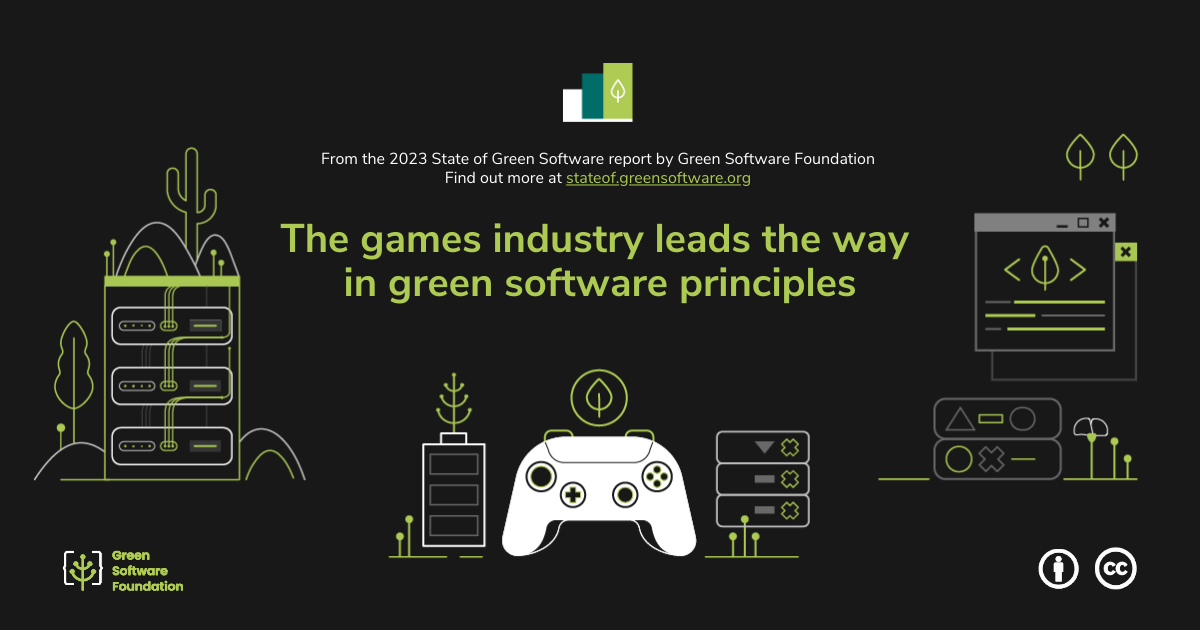The games industry leads the way in green software principles
The gaming industry is one segment where green software principles are playing an increasingly significant role. Given its scale—PwC speculates that it will be worth $321 billion by 2026—it’s clear that greening the gaming industry can have a demonstrable impact on reducing global emissions.
AfterClimate, a games and climate change consultancy, traces the net zero pledges and other climate-related commitments of major gaming companies and indie studios. AfterClimate observes that corporate pledges and references to Environmental, Social and Governance (ESG) vary by region and country. Some companies, including Microsoft and Sony, include scope 3 emissions in their calculations and consider the entire supply chain in their analyses. Overall, AfterClimate found over $17 billion of game industry revenue committed to net zero goals. Some gaming companies are going the extra mile: According to AfterClimate’s analysis, 10 of them are applying SASB (Sustainable Account Standards Board) sustainability accounting standards, nine are applying GRI (Global Reporting Initiative) disclosure standards, four are making validated Science Based Target initiative submissions, and six have begun linking executive compensation to ESG metrics.
One company showing its dedication to a greener approach is Microsoft. Microsoft released a carbon-aware Xbox, and, during the 2023 Game Developers Conference, announced that Xbox would be the “first console platform to release dedicated energy consumption and carbon emissions measurement tools designed for (and with) game creators to help understand and reduce the carbon footprint and energy consumption posed by the games that they develop.” With over 3 billion Xbox players worldwide, this is a significant step forward in reducing the emissions connected to game development and gaming.
The UN Environment Programme’s Playing for the Planet initiative includes major studios such as Microsoft Xbox, Niantic, Ubisoft, Unity, Sony PlayStation, and indie studios like Space Ape and Wildworks. The majority of alliance members (60%) have net zero or carbon-negative commitments. In Playing for the Planet’s 2022 annual impact report, their stated goals for 2023 are “to provide new guidance for the industry so that it can align with the Greenhouse Gas Protocol and then create new tools built for the sector to reduce its carbon emissions.” Playing for the Planet’s ambition is to create a decarbonization standard across the games industry.
In addition to carbon-aware toolkits for gaming consoles, energy-efficient technologies, and low-power suspend modes as ways of decarbonizing the industry, gaming companies are exploring ways to incentivize positive climate action, like planting trees or helping with plastic cleanup, through gameplay. In Playing for the Planet’s survey of over 400,000 gamers, 68% of respondents said they wanted to engage more on environmental issues, while 70% were open to climate-themed content in their games.
Gaming intersects with other high-energy workloads and technology trends, from NFTs to the metaverse, which can add to emissions associated with gaming. It is crucial for gaming companies to work together across the industry to reduce their collective carbon footprint.
